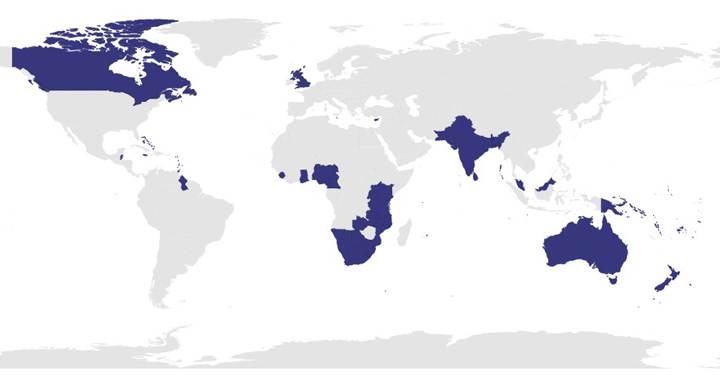The Commonwealth is a global family of 52 countries, diverse in cultures, economies and beliefs who have all officially committed to both the Universal Declaration of Human Rights and the Commonwealth Charter.
 Why the Commonwealth?
Why the Commonwealth?
The Commonwealth is home to 2.2 billion citizens of whom over 60% are under the age of 30. It includes some of the world’s largest and smallest countries as well as some of the richest and the poorest, stretching around the world.
Between them, the Commonwealth members demonstrate some of the world’s best practice for promoting the freedom of religion or belief but also some of the world’s biggest challenges in this area. Respect for freedom of religion or belief and human rights vary widely.
The Charter of the Commonwealth
The Charter sets out the values of the Commonwealth nations. The Charter was officially signed by Queen Elizabeth II at Marlborough House, London, on Commonwealth Day, 11 March 2013. The core values and principles of the Commonwealth as declared by the Charter are:
- Democracy
- Human rights
- International peace and security
- Tolerance, respect and understanding
- Freedom of Expression
- Separation of Powers
- Rule of Law
- Good Governance
- Sustainable Development
- Protecting the Environment
- Access to Health, Education, Food and Shelter
- Gender Equality
- Importance of Young People in the Commonwealth
- Recognition of the Needs of Small States
- Recognition of the Needs of Vulnerable States
- The Role of Civil Society